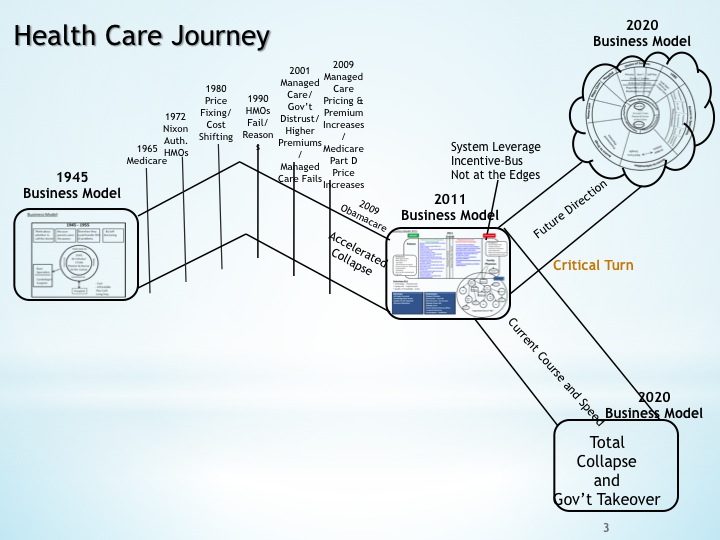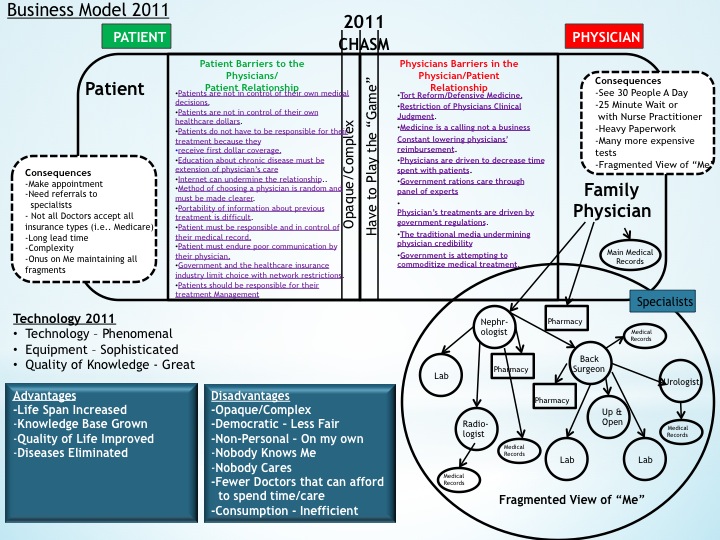I have written many articles on why I believe Accountable Care Organizations (ACOs) will fail.
ACOs are critical to the success of Obamacare as are many the other programs introduced by the Affordable Care Act.
If one listens to the Obama administration’s propaganda about how wonderful Obamacare has been for the American public, one would be living in a dream world, not the real world.
Obamacare has failed on many levels. The administration believes the public will not remember the previous failures.
Here are the failed promises.
- You can keep your doctor if you like your doctor.
- You can keep your health insurance policy if you like your health insurance policy.
- Each family will save $2500 dollars on healthcare each year.
- Anyone making less than $250,000 a year will not pay one red cent in new tax.
The failures of Obamacare
- Obamacare will bend the healthcare cost curve. It bent the cost curve for the first three years because Obamacare collected new taxes without providing healthcare services until 2014.
- Thirty-two (32) states refused to expand Medicaid.
- Twenty-two (22) of 50 states signed up to have state health insurance exchanges.
- All of the states that developed state co-ops with federal loans are under water. Fourteen of the 22 are bankrupt now. All will be bankrupt by 2017 or 2018.
- Private insurance enrollment though the federal health insurance exchanges has not increased for the last 3 years. Many of the buyers of health insurance exchange insurance have pre-existing illness. The health insurance exchanges are the only available insurance.
- The hospital system and private practice meaningful use electronic medical records have not increased percentage wise as expected.
- Worthless electronic medical records have increase at high costs to medical practices and hospital systems. These electronic medical records are providing some false big data information to the government and healthcare insurance industry to generate defective policy regulations. Hospital systems and physicians benefit little from the data generated.
- Healthcare.gov is still not right after spending billions of dollars over budget.
- Healthcare insurance premiums have skyrocketed for companies providing healthcare insurance to its employees.
- Healthcare insurance premiums have skyrocketed for people buying healthcare insurance from the federal and the few remaining state health insurance exchanges.
The only success I have seen is in Medicaid enrollment for the poor and illegal immigrants. The access of care has not improved for tax paying people.
These are just a few of the Obamacare failures. The public would never remember there have been so many failures reading the propaganda and press releases that appear from the government in the traditional mass media.
The Obama administration’s information has blurred those failures. I sense the public does not want to know about the impending disaster in the healthcare system.
Many intelligent people ignore these facts. They keep reciting the administration’s talking points about Obamacare’s success.
ACOs were supposed to lower healthcare costs. They were supposed to provide incentives for hospital groups and private practice groups to save money by providing more efficient medical care.
If these groups did lower the cost of care they would share in the savings along with the government.
There are many ways to achieve these savings and many measurements to determine these saving.
In short, ACOs were designed to shift the financial risk of care from the government to the physicians. If the physicians didn’t hit the benchmark they would lose money. The goal was also to shift to a flat rate payment for each illness from the individual fee for service based payment system.
Physicians will get paid a flat rate for a particular illness. It means that the risk for taking care of the illness at a particular cost shifts the financial burden to physicians and not the insurance company or the government.
The gigantic defect in the system is there is no burden on the consumer nor is there an incentive for consumers to be responsible for their health or healthcare dollars.
No risk is placed on the patient for compliance with treatment advice.
I have pointed out most of the defects in the ACO model in past blogs. ACOs are essentially an HMO on steroids. Hillary Clinton did not do too well in 1993 with the HMO model
ACOs do not address the problem of the high salaries of hospital administrators and healthcare insurance executives (who provide administrative services for the government). These salaries increase the cost of the healthcare system.
Last week CMS released another final rule intended to improve the way Medicare pays accountable care organizations (ACOs) in its Medicare Shared Savings Program (MSSP).
It is clear that if another final rule is made the last final rule is not working.
The hype of this new final rule is that the Obama administration has solved what many viewed as a critical flaw in the bonus structure for Medicare’s accountable care organizations.
I think the new final rule might make ACOs fail completely.
CMS spokesman said, ”Physician buy-in is critical for the long-term sustainability of the ACO program, which could play an important role within Medicare’s broader reforms to physician payments under the Medicare Access and CHIP Reauthorization Act, or MACRA.
MACRA is another poorly designed program that makes payment for physician service more difficult to understand.
MACRA could inspire physicians to quit the whole ACO enterprise.
A group of executives on the MACRA (Medicare Access and CHIP Reauthorization Act) task force said,
“A panel of healthcare experts and organizational leaders who began adapting to value-based payment years before the Medicare Access and CHIP Reauthorization Act started fleshing out regulations talked about their programs at the event sponsored by the Commonwealth Fund.”It is obvious to me that you cannot force anyone to do anything they do not want to do. You can only provide motivation and incentive for people to do what is best for themselves from their point of view.
MACRA will not get physician buy in because it will be too restrictive, arbitrary and controlling.
So far there are only 433 Medicare Shared Savings Program ACOs. There are 3000 hospital systems that should be participating in the Obamacare’s ACO program.
Only 14% of the hospital systems are participating after 3 years.
There are many large physician practices that should be participating in the ACO program. The number of these groups are unknown.
The lack of participation is a result of the complexity of the ACOs, the inability to form a unified culture of physicians in a hospital system and the difficulty hospital systems have with pricing risk.
Pricing risk is the job of the healthcare insurance industry and not physicians or hospital systems.
The government wants to put that task on the shoulders of the physicians and hospitals.
There are two risk tracts for ACO. Tract one is called one-sided risk.
The ACO only shares in the savings and does not participate in the losses if they spend more than the benchmark costs.
Tract 2 is call two-sided risk. The ACO shares in the savings with a more generous bonus from Medicare than the bonus of the tract 1 participants but pays a penalty to Medicare if doesn’t save money or demonstrate high quality care.
Only 22 of the shared-savings 433 ACOs or 5% of the participating ACOs have chosen two-sided risk. The Obama administration’s goal is to have all 3000 hospital systems participate the two-sided risk model.
The participation rate is .7% participation rate for the 3,000 hospital system that should be participating. It is far short of the Obama administration’s goal.
I would not rate the ACO participation rate as a success after 3 years.
This absolute failure has not been acknowledged by the Obama administration or the Obamacare praise singing traditional mass media.
The new final regulations and MACRA will not fix this failure. It will only make the failure worse. I will discus both the new final rule and MACRA next time.
The opinions expressed in the blog “Repairing The Healthcare System” are, mine and mine alone.
All Rights Reserved © 2006 – 2015 “Repairing The Healthcare System” Stanley Feld M.D.,FACP,MACE

